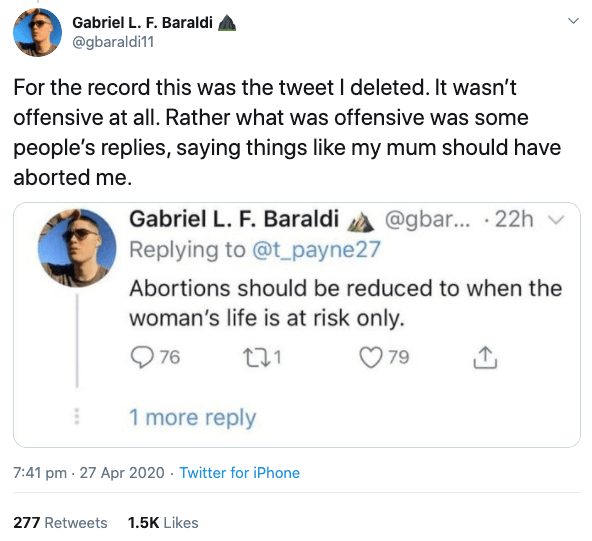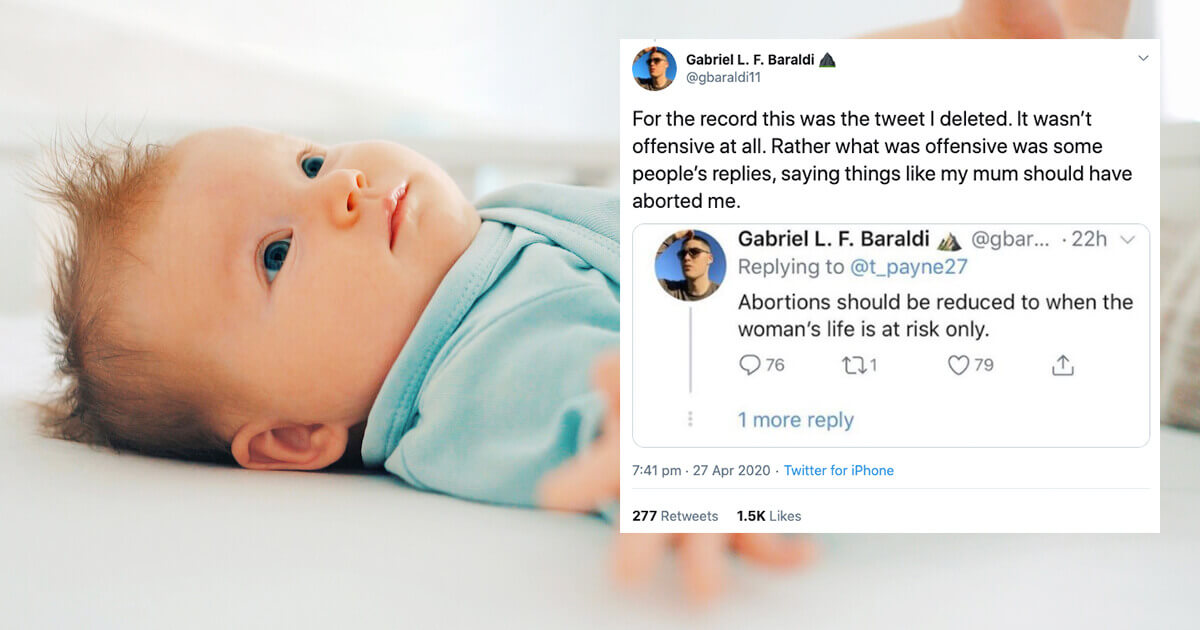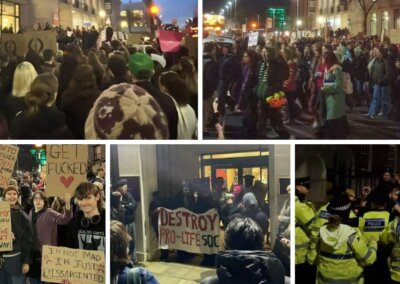A pro-life student has been forced to delete a tweet calling for a reduction in the number of abortions and to remove his role as President of the Students’ Union from his social media profile.
Gabriel Baraldi, a student at Bournemouth & Poole College, published a tweet expressing the view that “abortions should be reduced to when the woman’s life is at risk only”.

Following its publication, the tweet attracted a number of derogatory and vitriolic responses from those who disagreed, including one which said Gabriel’s mother should have aborted him.
Complaints were then made to Bournemouth & Poole College who passed them on to the Executive Committee of the Students’ Union, which is run by students.
The Executive Committee considered the tweet offensive and, according to Archbishop Cranmer, asked Gabriel to delete it and remove his role as President of the Students’ Union from his Twitter bio – a position he was democratically elected to by fellow members of the Students’ Union.
Responding to the censorship, Gabriel said: “I hope people are happy they got to shut down yet another debate and point of discussion.”
“You haven’t won the debate, you’ve simply suppressed it,” he added.
Dr Rakib Ehsan, a columnist at Spiked Online which used to rank universities on free speech, picked up on this tweet: “Irrespective of your thoughts on Gabriel’s comment, worth having a look at the responses.
“Many left-wing students/activists are unable to provide a coherent opposing view. Shutdown culture and campus identity politics will create a huge wave of low-grade degree holders.”
While this incident may seem small, it is just the latest example of pro-life speech being censored in education settings across the UK.
In what is believed to be the first case of its kind, Julia Rynkiewicz was forced to suspend her studies at Nottingham University over her pro-life views.
The final year midwifery student was suspended from her course and became the subject of an almost four-monthlong investigation.
Additionally, she faced expulsion from her degree after lecturers raised concerns about her involvement with the Nottingham Students for Life (NSFL) society.
Julia believes she was unfairly targeted over her views and has asked Nottingham University to make a formal apology. If they fail to do so, she could carry her case through to the ombudsman and then on to court.
Last year, Strathclyde Students for Life in Glasgow were forced to remove their stall from a university freshers’ fair following complaints from the Students’ Union who claimed the pro-life group breached their safe-space policies.
In what appears to becoming a pattern at universities across the UK, many pro-life groups have been hindered in their ability to speak freely and enjoy the same benefits as other student societies.
Student representative bodies at Aberdeen University, Glasgow University, Nottingham University, and at Strathclyde University have all had to reverse their decisions to refuse affiliation to pro-life groups after the groups raised the prospect of legal proceedings.
In 2018, the Joint Committee on Human Rights released a report on Freedom of Speech in Universities, which criticised growing restrictions on free speech and the new phenomenon of ‘no-platforming’ policies on UK campuses and the exclusion of pro-life views.
A spokesperson for Right To Life UK, Catherine Robinson said:
“Universities were once considered a key forum in which ideas and opinions could be discussed and argued, however, more and more we are seeing attempts to censor the pro-life view from being discussed on campus.
“It’s sad to see the incredible amount of vitriol directed at Gabriel for expressing a view shared by millions of other people his age. The behaviour of both individual students and the Students’ Union Executive Committee sets a dangerous precedent for freedom of speech and expression more generally.”












